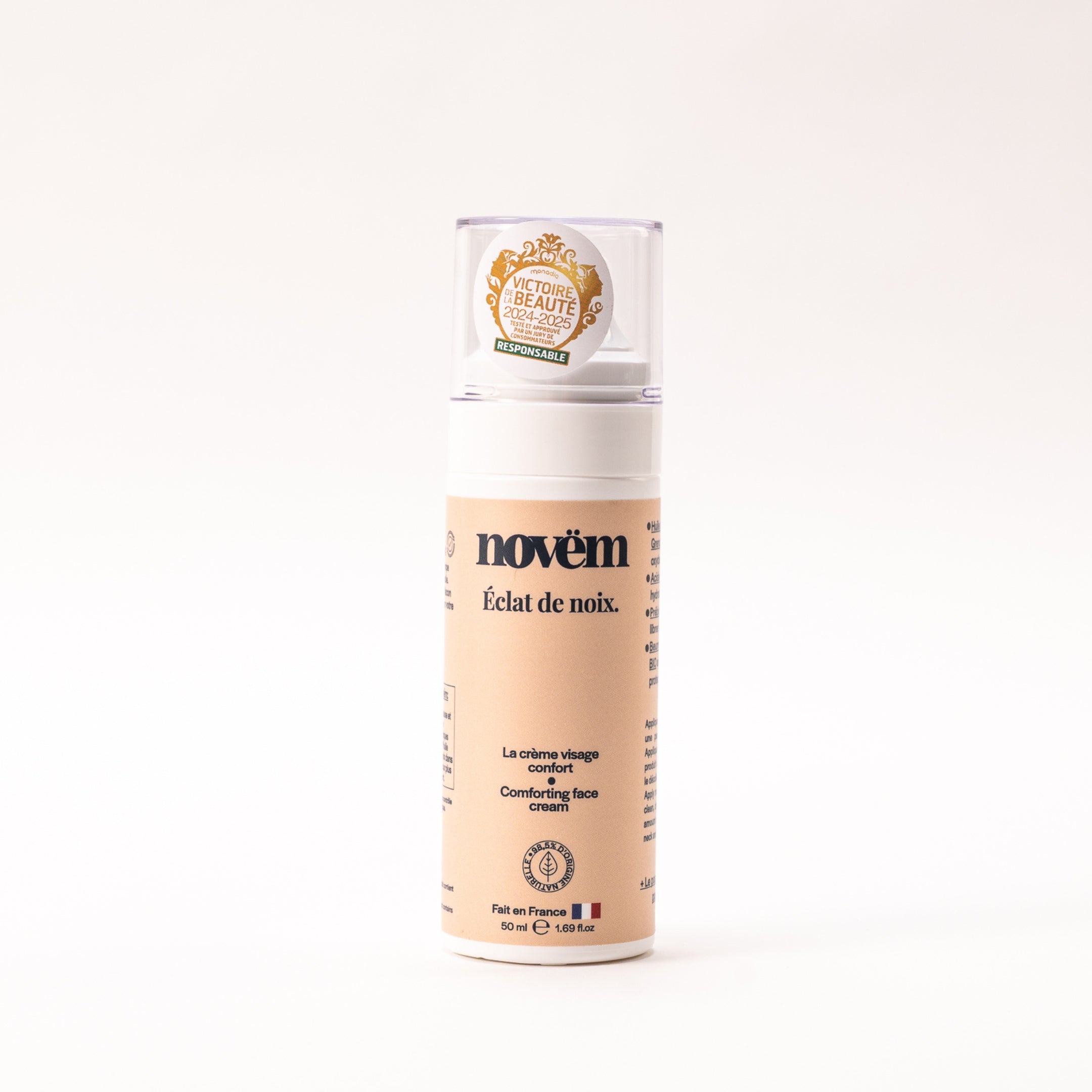Eczema is a common skin condition that affects millions of people worldwide. Characterized by skin inflammation, intense itching, and sometimes blistering or crusting, the condition can greatly affect quality of life. Conventional treatments typically include corticosteroid creams, antihistamines, and other medications. However, more and more people are turning to natural solutions to soothe eczema symptoms, seeking alternatives that are less harsh on their skin.
Walnut oil, particularly walnut oil, has gained increasing interest for its beneficial skin care properties. But can it actually help treat eczema? In this article, we’ll take a deep dive into eczema, the possibilities of natural treatments, and the fascinating history of walnut oil as a potential remedy.
-
Understanding Eczema: Causes and Symptoms
Eczema, also known as atopic dermatitis, is a chronic inflammatory skin condition that can occur at any age. The exact causes of eczema are not fully understood, but it is generally attributed to a combination of genetic and environmental factors. Common triggers include allergens, stress, chemical irritants, and climate changes.
The main symptoms of eczema include:
- Intense itching: The most common symptom, often difficult to control.
- Redness: Affected skin may become red, inflamed and sensitive.
- Dryness: The skin often becomes extremely dry, scaly and may crack.
- Blisters: In more severe cases, blisters may form, sometimes oozing fluid.
- Thickening of the skin: Thick, rough skin may develop in response to chronic itching.
-
The Limits of Conventional Treatments
Conventional treatments for eczema focus primarily on managing symptoms rather than curing the condition. Topical corticosteroids, the most commonly prescribed, are effective at reducing inflammation and itching, but they can have unwanted side effects, especially with prolonged use. Skin can become thinner, more prone to infection, and medications can lose their effectiveness over time.
Faced with these limitations, many patients are looking for natural alternatives to soothe their skin without the side effects associated with conventional treatments.
-
The Emergence of Natural Products to Treat Eczema
Natural remedies for eczema focus on moisturizing, reducing inflammation, and strengthening the skin barrier. Some of the most popular natural ingredients include:
- Aloe vera: Known for its soothing and moisturizing properties.
- Coconut oil: Used for its moisturizing and antibacterial effects.
- Colloidal oatmeal: Effective for calming itching and soothing the skin.
- Shea butter: Very moisturizing, it helps restore the skin barrier.
However, a lesser known ingredient, but increasingly recognized for its benefits, is walnut oil.
-
The History of Walnut Oil as a Traditional Remedy
Walnut oil is not only a delicious culinary ingredient, it also has a long history of use as a natural skin remedy. In the Grenoble region, where walnuts have been cultivated for centuries, walnut oil has been traditionally used to treat a variety of skin conditions, including eczema.
The story goes that local farmers used this oil to soothe skin irritations and inflammations caused by manual labor and exposure to the elements. This is how interest in the beneficial properties of walnut oil began to grow, paving the way for its wider use in skin care.
-
Why is Walnut Oil Beneficial for Eczema?
Walnut oil is rich in essential nutrients that can benefit eczema-prone skin. Here are some of its most notable properties:
- Rich in Omega-3
Omega-3s are essential fatty acids known for their anti-inflammatory properties. Inflammation is a key factor in the development and worsening of eczema, and omega-3s can help reduce this inflammatory response, thereby relieving symptoms.
- Antioxidants and Polyphenols
Walnut oil is rich in polyphenols, antioxidant compounds that protect the skin from free radical damage. Antioxidants also help repair the skin barrier, which is often compromised in people with eczema.
- Deep Hydration
One of the main features of walnut oil is its ability to deeply moisturize the skin. Well-moisturized skin is less likely to itch, crack, or dry out, which is essential for those suffering from eczema.
- Soothing and Regenerating
Thanks to its composition rich in vitamins (especially vitamin E) and fatty acids, walnut oil helps to regenerate skin cells, thus soothing irritated areas and promoting the healing of lesions caused by eczema.
- How to Use Walnut Oil to Treat Eczema
To get the most out of walnut oil in treating eczema, it's important to use it correctly. Here are some tips for incorporating this precious oil into your skincare routine.
- Direct Application
Walnut oil can be applied directly to the affected areas. For best results, apply the oil to clean skin, ideally after showering, when the pores are still open, thus facilitating absorption. Gently massage the oil until it is completely absorbed.
- Blended with Other Natural Ingredients
You can also mix walnut oil with other soothing natural ingredients, such as shea butter or coconut oil, for extra moisture. A mixture of walnut oil and aloe vera can also be effective in calming itching.
- Use as a Hydrating Mask
For a more intense treatment, try using walnut oil as a hydrating mask. Apply a generous layer to the skin, leave on for 20 to 30 minutes, then rinse with warm water. This mask can be repeated two to three times a week to help keep skin well-hydrated and nourished.
- Testimonials and Studies on the Effectiveness of Walnut Oil
Although the use of walnut oil to treat eczema is mostly anecdotal, many people report significant improvements in their condition after incorporating this oil into their skincare routine. Reports include reduced itching, improved skin texture, and a decrease in the frequency of eczema flare-ups.
Further research is needed to scientifically confirm the effectiveness of walnut oil in treating eczema. However, the oil's known properties, such as its richness in omega-3s and antioxidants, suggest that it could be a valuable addition to conventional treatments.
-
Precautions and Considerations
Although walnut oil is generally considered safe for topical application, it is always recommended to do a tolerance test on a small area of skin before wider use, especially if you have sensitive or allergy-prone skin. If an allergic reaction occurs, discontinue use immediately and consult a healthcare professional.
It is also important to remember that while walnut oil can provide relief and improve symptoms, it should not replace medical treatments prescribed by a dermatologist. Eczema is a complex condition that may require a multidisciplinary approach.
-
Novëm Care for Atopic Skin
At Novëm, we have developed a range of natural skincare products based on Grenoble walnuts, specifically designed for sensitive and atopic skin. Our products are formulated with
carefully selected ingredients to soothe, moisturize and protect the skin, while respecting the environment.
Eczema is a skin condition that can be difficult to manage, but natural products like walnut oil offer a promising option for soothing symptoms. Rich in omega-3s, antioxidants, and vitamins, walnut oil has anti-inflammatory, moisturizing, and regenerative properties that make it a valuable ally in the treatment of eczema.
While it’s important to continue your doctor’s prescribed treatments, incorporating walnut oil into your skincare routine can provide natural and effective relief. Explore the benefits of this traditional oil and learn how it can help improve your quality of life by soothing eczema symptoms.






